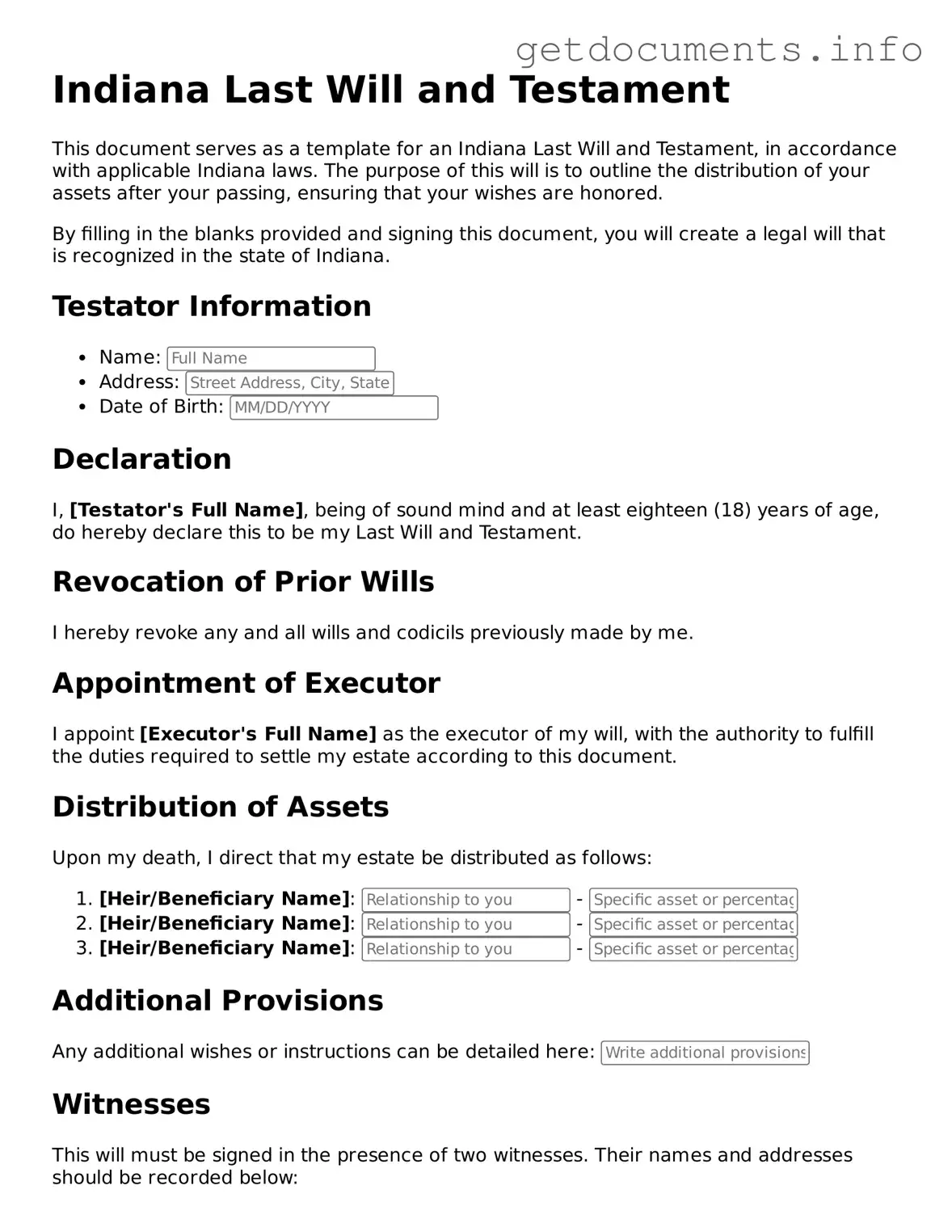When it comes to creating a Last Will and Testament in Indiana, there are several misconceptions that can lead to confusion. Understanding these misconceptions can help ensure that your estate planning is done correctly and meets your needs.
- Misconception 1: You must use a lawyer to create a valid will.
While having a lawyer can be beneficial, it is not a legal requirement in Indiana. Individuals can create their own will as long as it meets specific criteria set by state law.
- Misconception 2: A handwritten will is not valid.
In Indiana, a handwritten will, also known as a holographic will, can be valid if it is signed by the testator and the material provisions are in their handwriting. However, it is often advisable to use a typed document for clarity.
- Misconception 3: All assets must be mentioned in the will.
While it is a good practice to list significant assets, not all assets need to be included. Some assets, like those held in a trust or with designated beneficiaries, may pass outside of the will.
- Misconception 4: You can change your will whenever you want.
While you can change your will, it is essential to follow the proper procedures for making amendments. A new will or a formal amendment (codicil) should be executed to ensure that changes are legally recognized.
- Misconception 5: A will can take effect only after death.
This is true in most cases; however, some provisions can be effective immediately, such as appointing a guardian for minor children. Understanding the timing of different provisions is crucial.
- Misconception 6: Only wealthy individuals need a will.
Everyone, regardless of wealth, can benefit from having a will. A will helps ensure that your wishes are carried out and can simplify the process for your loved ones, no matter the size of your estate.
- Misconception 7: If you have a will, you don’t need to worry about probate.
Having a will does not avoid probate; it simply provides guidance on how your assets should be distributed during the probate process. Probate is still necessary to validate the will and settle your estate.
- Misconception 8: A will can include instructions for medical care.
A will is not the appropriate document for medical care decisions. Instead, individuals should create a living will or a healthcare power of attorney for medical directives.
- Misconception 9: Once a will is created, it cannot be changed.
This is false. You have the right to revise your will at any time as long as you are of sound mind. Regularly reviewing and updating your will can ensure it reflects your current wishes.

